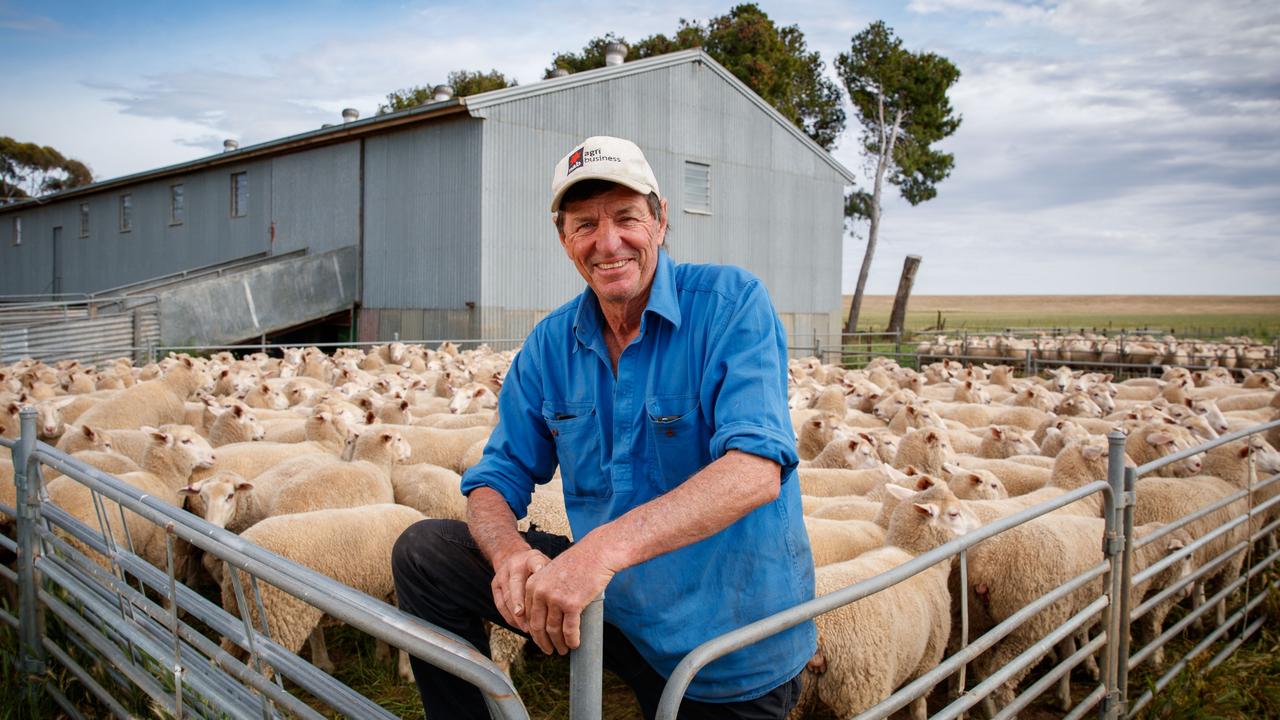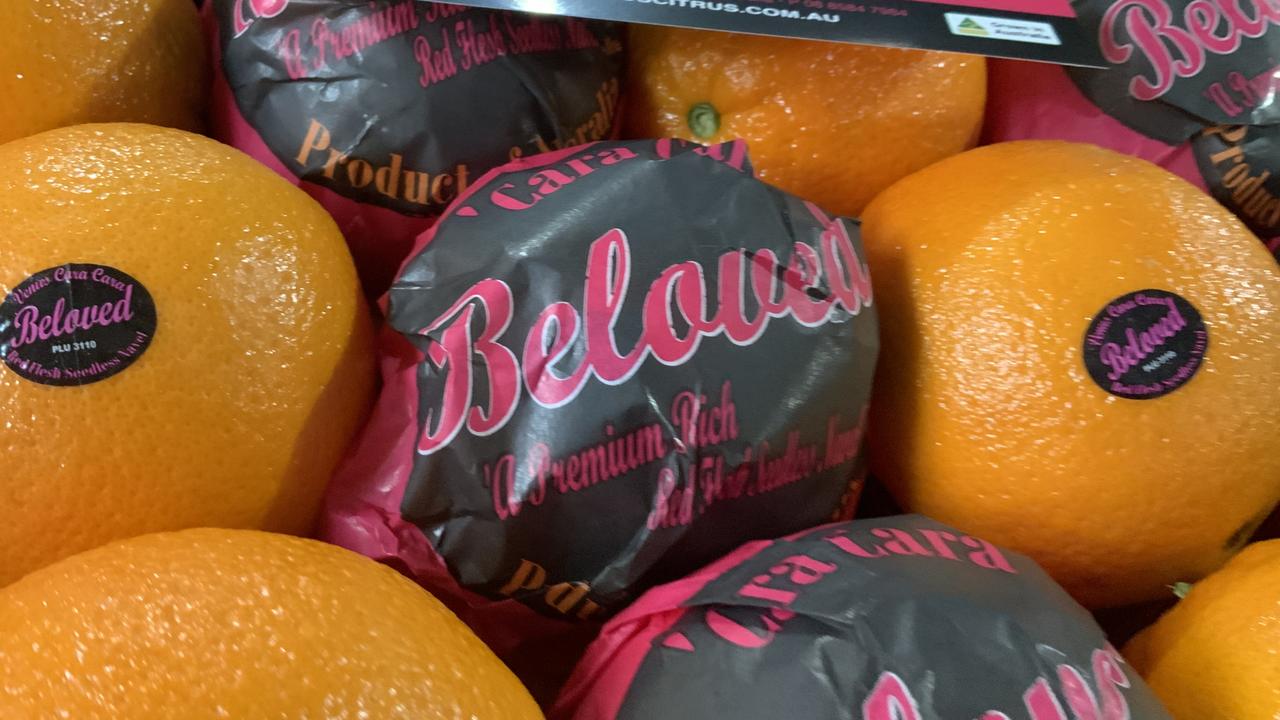Manna Farms remain clean and green for 30 years
MANNA farms shows that cottage-style, clean-green horticulture can also be commercially viable when done on a large scale, writes SARAH HUDSON.

CLEAN and green is a relatively new mantra for many agricultural sectors.
But 30 years after they first became certified biodynamic, the Keens family — Australia’s largest producer of biodynamic almonds through their Manna Farms brand in the Victorian Mallee — says chemical-free production is a no-brainer.
Instead, co-owner David Keens said their focus was all about showing commercial volumes could be achieved through biodynamic production — and that biodynamic was not a niche, cottage industry.
“Dad was one of the early adopters and at the time he was frowned on and laughed at, but he understood back then it’s about healthy staff and the environment and good food for the consumer,” David said.
“Our philosophy is to grow as much as possible and as cheaply as possible, so more people can eat it.
“We are trying to minimise the price as much as we can to get as much volume out and make it accessible to consumers.”
Manna Farms also grows citrus and avocados and was officially certified biodynamic in 1989 by father Ian, who retired and passed the reigns to his sons, fourth generation David and Rob, around 2011.

Manna Farms today has a total 520ha across five properties — largely adjoining — in the Nangiloc and Colignan regions.
There is more than 200ha of almonds (as well as 0.5ha of walnuts), grown in eight varieties, with nonpareil forming the majority of production; a further 30ha of vacant land is set for new plantings in coming years. The 2019 yield was 350 tonnes.
Nuts are cracked and processed through an organically certified production process at AlmondCo.
BROAD A-PEEL
MANNA Farms grows 12 different navel orange varieties on nearly 90ha, more than 20ha of valencia, in two varieties, 16ha of mandarins, and 11ha of lemons — with citrus yielding an average 30-35 tonnes/ha — as well as about 5ha of avocados (hass and reed).
Citrus is packed in their two-year-old 66m-long packing facility, which includes such latest technology as digital scanning and automatic bagging.
David said as much as clean, green products fetch premium prices, being biodynamic was not a get-rich-quick scheme: what made up in premiums, they lost in extra production costs including labour, and even inputs, such as compost, as well as lower yields.
“While we get about double the price for conventional almonds, our yields are 70 per cent compared to conventional growers,” said the 39-year-old father of three.
“And inputs are significantly more, nearly double. No matter which one you choose — conventional or organic — at the end of the day you end up with the same amount in your pocket.”
David said new biodynamic products could be lucrative.
For the likes of their almonds, citrus and avocado — “which aren’t developing markets” — the focus had to be volumes.
He said Manna Farms used to diversify in a variety of produce, from asparagus to watermelons and cattle.
“But we decided let’s do everything in a large scale and properly. It was an excellent decision,” David said.
Now, about 5 per cent of Manna Farms citrus is exported, with the majority sold to Woolworths along the eastern seaboard through their Macro organic brand.
Almonds are marketed by AlmondCo. Currently up to 10 per cent are exported to the likes of New Zealand, Korea and Japan, but with plans to expand that to 50 per cent of production by 2022.

“We think the domestic market is largely saturated with organic and biodynamic product. It’s growing with almond milk and meal and we’ve had a lot of demand from overseas,” David said.
“The problem with export is quantities. In Australia we get asked for up to five tonnes a month, whereas we field inquiries for 250 tonnes from overseas.
“So it’s another market we plan to chip away at.”
AGAINST CONVENTION
HAVING farmed biodynamically for three decades, David is matter-of-fact about reduced yields and crop losses.
Compared with their citrus yields (up to 35 tonnes/ha) conventional producers reach about 50 tonnes/ha; Manna Farms almonds yielded 2000kg/ha this year, whereas conventional reaches up to 3500kg/ha.
He said they figured out early that immature almond and citrus trees in their first three years of growth had to be grown conventionally in a complex buffer zone system, clearly tagged and marked, away from biodynamics crops.
“We had such significant losses or stunted plants due to competition with weeds or grasses that we realised farming low-input and conventional was the only way to get them established. It was a lot of trial and error and now patch by patch across sections of the farm is in conversion.”
Once established, trees are given applications of the key biodynamic input, 500 or diluted cow horn manure, sprayed out in spring and autumn. They also receive two applications of custom-blended compost.
Almonds are given a trace element foliar spray, as well as sulphur sprays as a prevention against disease.
Citrus trees are vulnerable to pests, especially thrips, red scale and mealy bug, for which they receive such organic applications as copper and paraffin oil.
David said the biggest losses came after the 2011-12 drought broke and they received rain that caused disease in 70 per cent of almonds, which increased to 90 per cent loss in the same year after hail damage.
SECOND GEAR
CITRUS can suffer scars or blemishes, which means a 50 per cent loss of income for second-grade fruit.

Manna Farms has 16 full-time staff, not including seasonal workers and David said biodynamic farms needed more labour for weeding and slashing compared with conventional farms.
“I’d rather have more labour costs and help the local economy, than pay more for chemicals and help the multinationals.” he said.
David said the great leveller between conventional and organic producers was water costs, with his farms being hit hard buying significant amounts of temporary water.
“It’s the one area of the business that is scary and means we don’t know whether we’ll be around in three or four years’ time,” he said.
“The next 18 months is make or break and if we don’t get rain it will be diabolical.”
David said despite the swings and roundabouts of biodynamic farming, it had been good to his family.
“Dad was one of the first to grow almonds in this area and he was laughed at for that, then he was shunned for converting to biodynamic, on the advice of his sister,” David said.
“He was able to send his children to boarding school in Melbourne and continue the farm for the next generation.”


